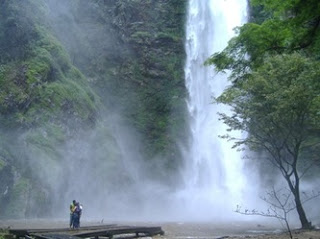Tripatini
the world's smartest travel social network
Tips on How to be a Responsible Tourist in West Africa

Responsible tourism is about tourists making environmentally friendly, sustainable, ethical and respectful choices when travelling and minimising the negative impact of tourism. Being responsible is something all tourists needs to take into consideration when making a decision on travelling to a destination.
Responsible travel can be considered as the most enjoyable way to travel because it brings you closer to local people and culture, it gives you the chance to experience the authenticity of the destination. It shares some of the benefits of tourism more widely with local communities, and helps minimised some of the negative impacts tourism might often have.
No matter the type of travel you’re involved in, tourism brings both positive and negative impacts to a destination but responsible travel and tourism maximises the benefits of tourism and reduces some of the negatives.
The majority of us travel to experience new cultures, take on new challenges, experience new activities, or even to discover ourselves. Travelling gives us the opportunity to take a break from our typical daily routines and to reflect on the importance of life. But yet almost all travellers show an abject ignorance of anything other than a westernised world view. Being a responsible tourist can make a big difference by supporting the type of tourism that is not harmful to the environment and is supportive of local communities who lead the effort to gain or maintain sustainable livelihoods.
Contact between tourists and local people may result in mutual appreciation, therefore tourists need to be aware of local customs, traditions and to show respect to the host community in question. Residents will then be open minded and will be more willing to be educated about the outside world without leaving their homes, while their visitors significantly learn about a distinctive culture. Local communities are benefited through contribution by tourism to the improvement of the social infrastructure like schools, libraries, health care institutions, internet cafes, and so on. If local culture is the basis for attracting tourists to the region, it is important to preserve the local traditions and handicrafts.
If tourists’ attitudes change and they allow themselves to become responsible travellers, the host communities will benefit from this by protecting endangered wildlife, as the importance of preserving and conserving this resource will become more apparent. Many of West Africa’s countries depend on their wildlife as tourist attractions and if it’s not protected, there will be a decline of tourist numbers and as a result will have a bad effect on the economy. For example every year around 23000 tourists visit the Bijilo forest park in the Gambia and because the park is close to Banjul which is the capital city, it is easy for tourists to commute from the park to the town. However, the number of incoming visitors tends to be high which causes overcrowding. This causes damage to local wildlife especially the green monkeys which no longer find the need to look for food but instead sit beside nearby road sides and wait for tourists to feed them. In addition, tourists purchase bags of peanuts for the animals and litter the grounds with the empty bags. This is a danger for the monkeys who attempt to ingest them. Also, by over feeding these monkeys, they become over-friendly and become susceptible to theft by poachers.
Bearing this in mind, it is advisable for tourists to be educated on the effect of their ignorance. In doing so, tourists will become responsible for their actions while enjoying the experience.
At the end of the day by protecting and enhancing favourite destinations, future enjoyment for visitors and local resident will be sustained.
Another point is that tourists need to recognise that water and energy are precious resources which need to be used carefully. It’s important to buy from the local stores, use local taxis, local tour guides etc. All these little transactions help the local community. In the Gambia, for example, there is an excellent selection of good quality restaurants, therefore by eating in local restaurants you are ensuring that your visit benefits the wider community.
Applying the WCED’s definition of sustainability¹ to tourism, as coined in Bruntland’ Commission, the reason for responsible travel to be practised is “to meet the needs and aspirations of the present without compromising the ability to meet the need and aspiration of future generations.” The core issue is conserving resources. There is a need to balance social, economic and environmental impacts for both tourists and host communities.
To learn more about projects that work towards implementing responsible tourism principles in the Gambia, you can view out selection here.
You can also learn more about travelling in and around West Africa by joining our growing community of 1000+ people passionate about West Africa and its beautiful local heritage.
¹ World Commission on Environment and Development (1987). Our Common Future. Oxford: Oxford University Press.
Videos
Groups
-
India
173 members
-
Tour Operators
873 members
-
Ireland
93 members
-
South Dakota
17 members
-
Azerbaijan
17 members
-
Shopping the World
55 members
-
Tech for Travel/Hospital…
87 members
-
Andorra
26 members
-
Online Corner
75 members
-
Minnesota
22 members
-
Backpackers & Hostels
84 members
-
Portugal
60 members
-
Turks and Caicos
26 members
-
Agritourism/Farmstays
72 members
-
Zambia
21 members
© 2025 Created by EnLinea Media.
Powered by
![]()
Badges | Report an Issue | Privacy Policy | Terms of Service
You need to be a member of Tripatini to add comments!
Join Tripatini